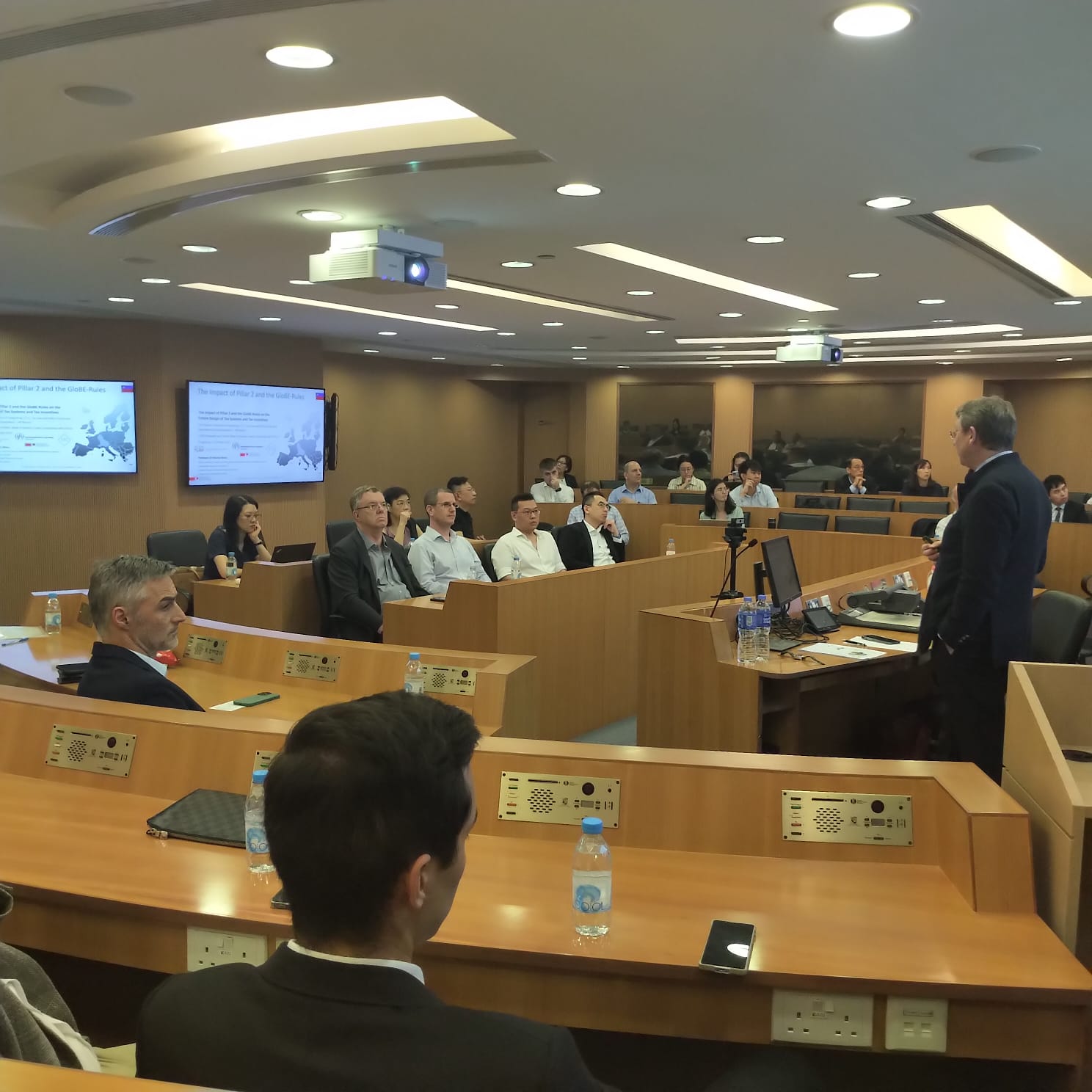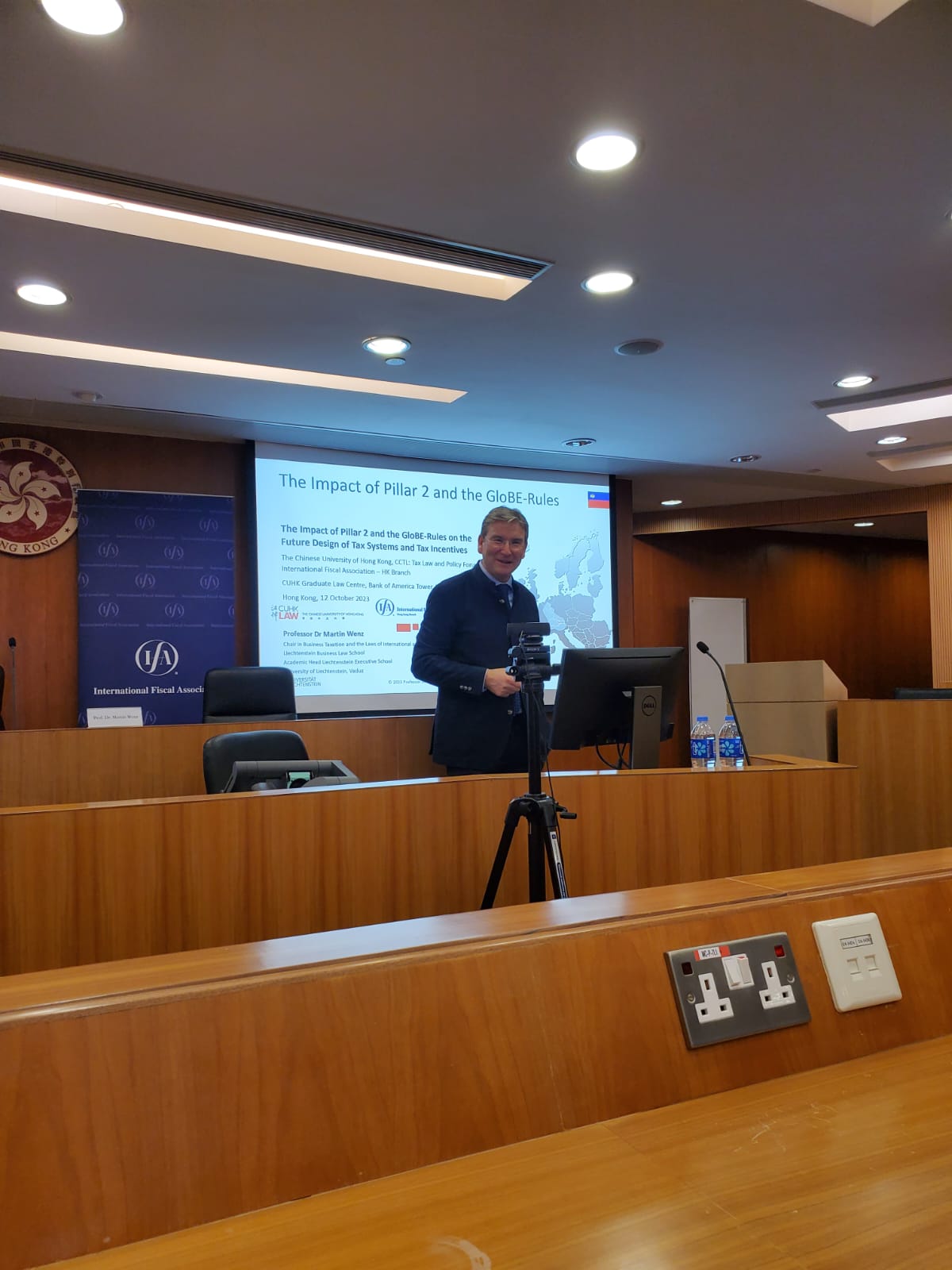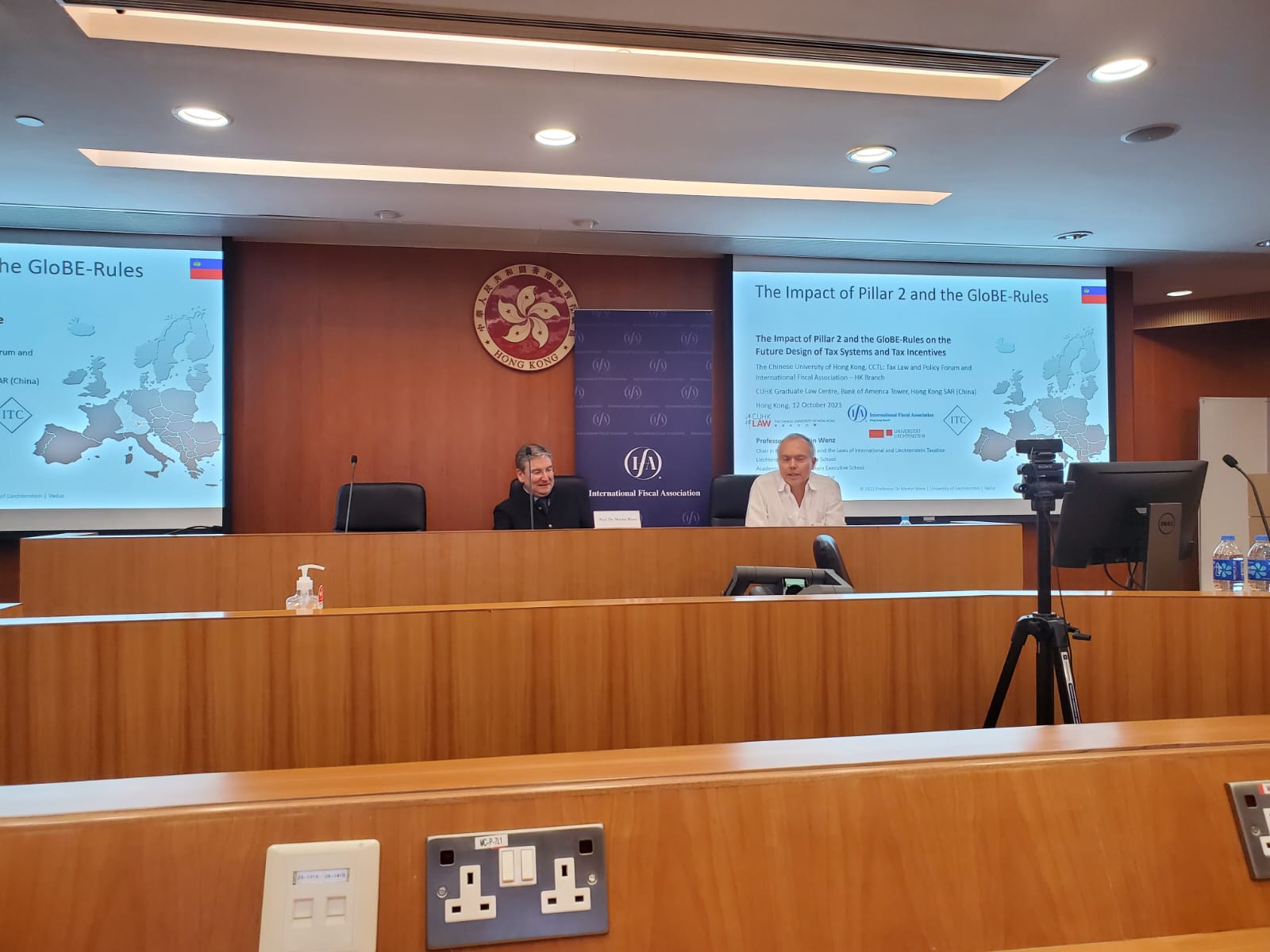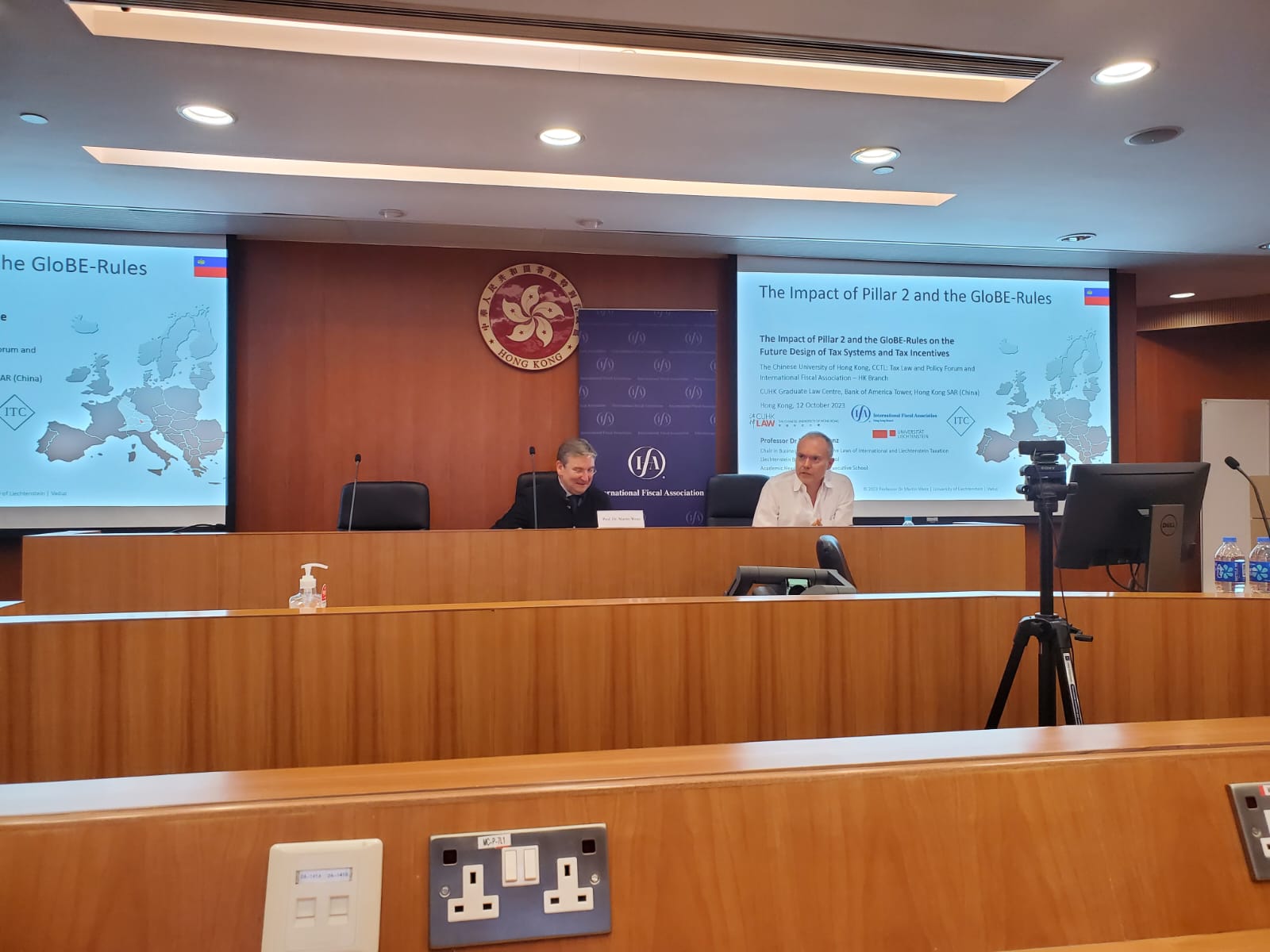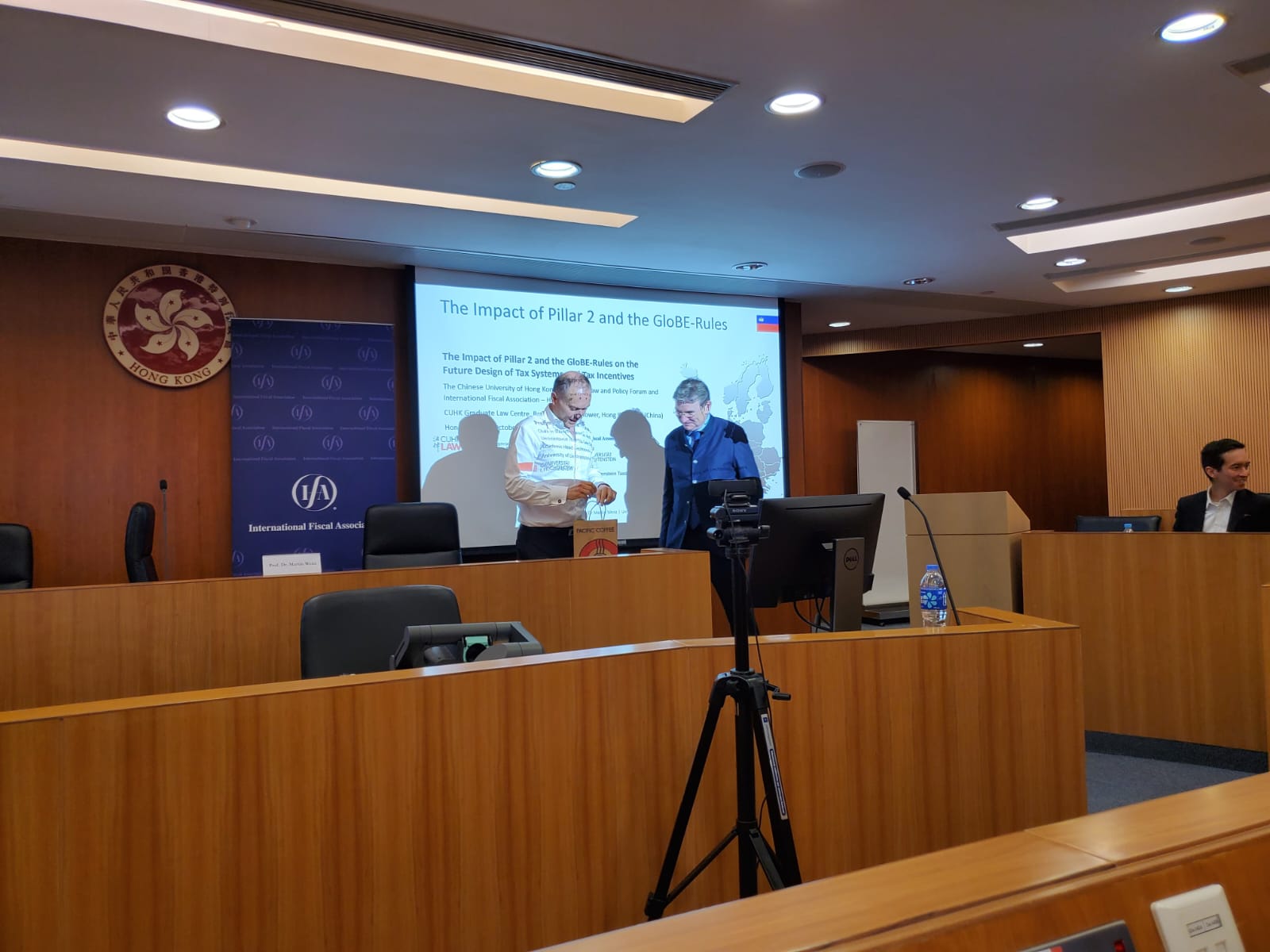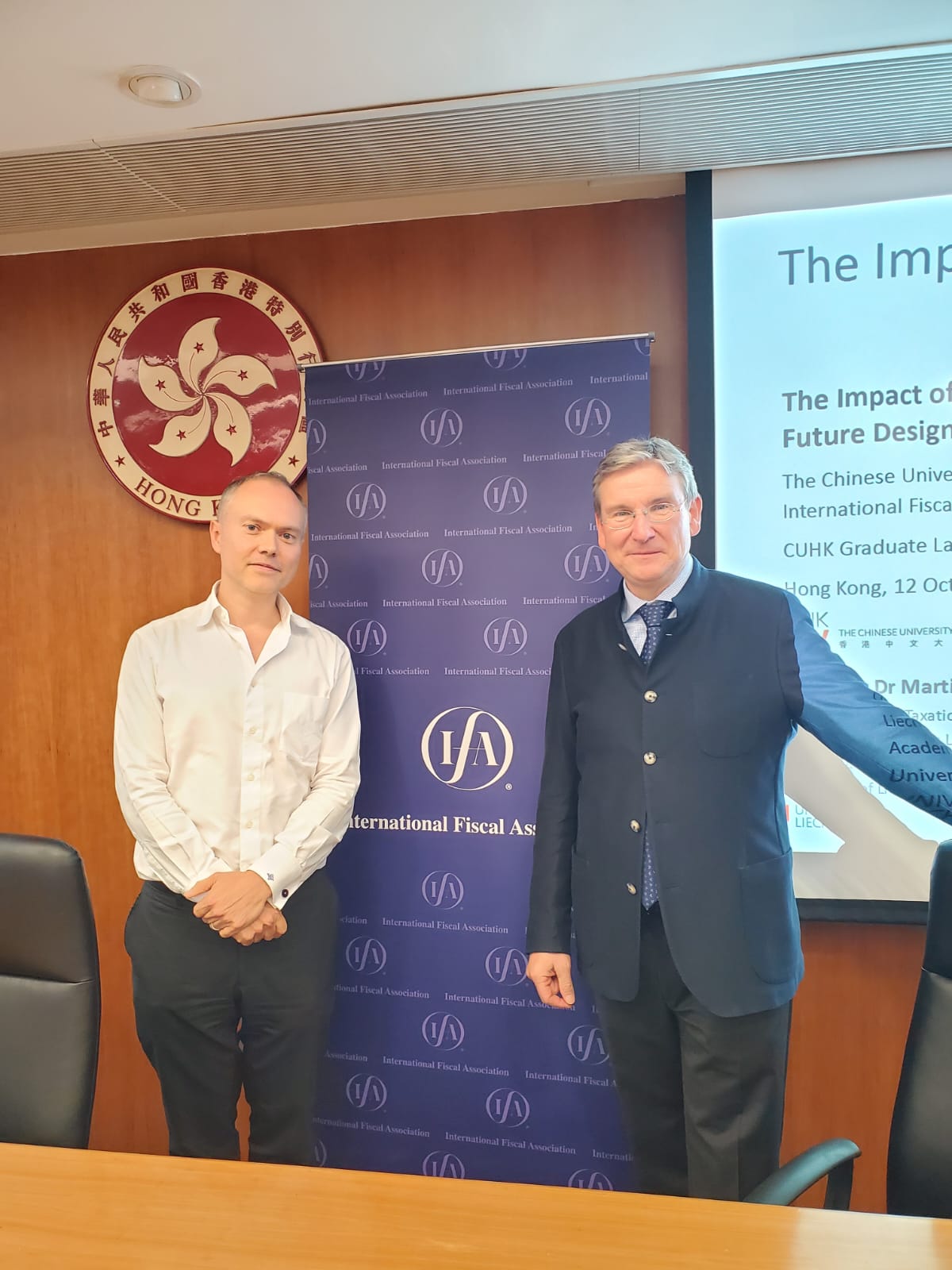The global level-playing field on taxation as well as the tax systems of jurisdictions are currently challenged and amended essentially by the implementation of Pillar 2 and the GloBE-Rules resulting into a global minimum taxation of 15% on certain multinational enterprises, wealth structures and family offices to floor tax competition. At the same time, the US still follows their amended GILTI-Rules and addresses the implementation of certain GloBE-Rules as a 'refusable' extraterritorial taxation.
The seminar focused on the tremendous impact of GloBE on the future design of tax systems and tax incentives post BEPS 1.0 and 2.0. In jurisdictions with a territorial tax system, a competitive tax burden or various preferential tax regimes like in Hong Kong, Ireland, Liechtenstein, Singapore, and Switzerland, traditional income- and expenditure-based tax incentives like IP-Boxes and R&D-super-deductions with reduced effective tax rates are mostly cancelled-out by GloBE-top-up taxes, subject to the introduction of so-called Qualified Refundable Tax Credits (QRTC). Vice versa, high tax countries like France, Spain and the UK still may use several traditional tax incentives like IP-Boxes and R&D-super-deductions with reduced effective tax rates in order to increase their tax competitiveness and to lower their effective tax burden even up to a maximum of 15%.
Whereas tax competition in the past boosted cross-border BEPS and the respective use of tax incentives in highly competitive jurisdictions, the introduction of GloBE will support domestic BEPS measures to achieve a similar level of tax competitiveness in less competitive countries. Thus, tax competition is everything, but ended by the introduction of GloBE-Rules, and was supplemented more and more by subsidy competition.

